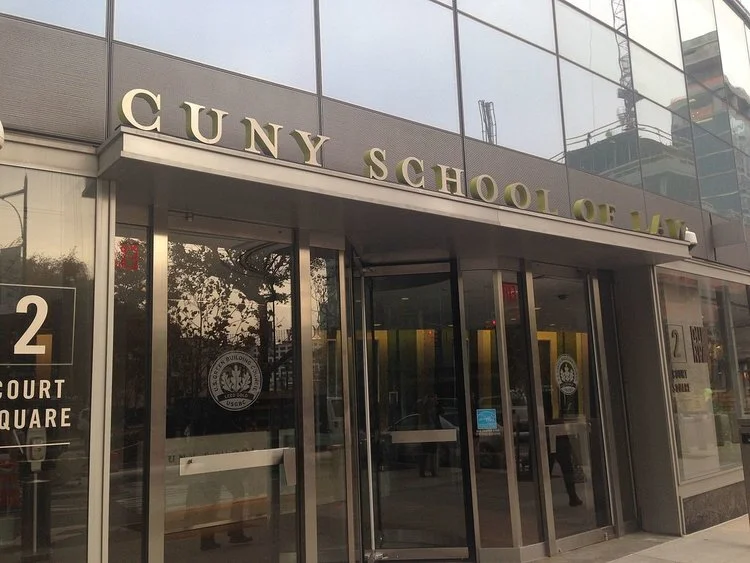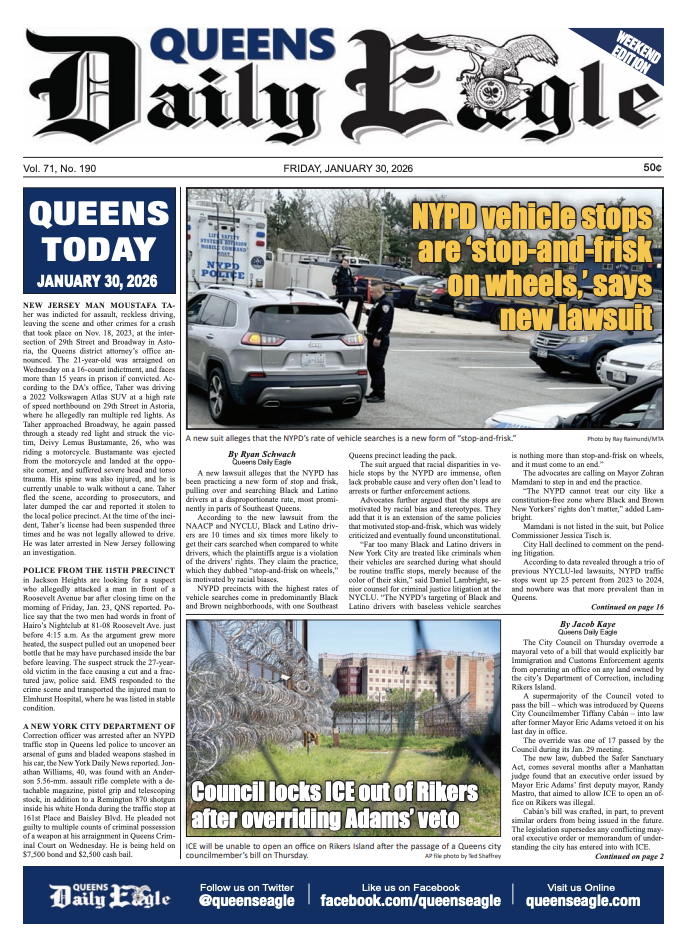CUNY, NYU Law team up to publish formerly incarcerated writers
/Students from CUNY Law and NYU Law School reviews are devoting their fall editions to incarcerated and formerly incarcerated submissions. Photo by EVULAJ90 via Wikimedia
By Rachel Vick
A group of law students from CUNY and NYU Law schools are coordinating their respective fall law journals to exclusively publish currently and formerly incarcerated writers.
Colby Williams, editor of the Footnote Forum portion of CUNY Law Review, connected with Amelie Daigle, co-editor-in-chief of the NYU Review of Law and Social Change, to try and shift the idea of what legal scholarship can look like through a collaborative effort to draw as much attention to the subject as possible.
“If we're going to say lived experience and perspective has value, we have to acknowledge a mismatch between format and people who own that lived experience,” Williams said. “If people find value in the perspectives... then hopefully that opens up the door for all who are interested to listen and have the opportunity to listen.”
Williams said that while submissions from people currently incarcerated have been published in journals before, they might not meet the stringent requirements of a traditional publication — especially when it comes to writing and citing in an environment without access to the databases typically used.
“We’re taking the approach that these writers experience thoughts and ideas [which are] more important than what other academics have to say in cited sources,” he added, hoping readers will “glean nuggets of truth or gold from each.”
“If nothing else it will mean a lot to the contributors,” he said. “Working with them is great joy and something I hope my staff remembers and that it sets a precedent.”
The submissions to CUNY Law range from a first person account of problems one man sees in prison and ideas for reform, to formerly incarcerated people in law school and established professors who are considered experts in their field.
David Campbell, a writer who spent a year in Rikers after being charged with violent felonies for his involvement in a 2018 fight outside a pro-Trump event, celebrated the work to center the justice-involved perspective and said that being able to contribute his experiences to the conversation in a critical way “is special.”
Campbell’s piece is based on his experience last year when he and others did not receive their $40 weekly salary, which was reinstated at just $10 a week around the same time as the correction officers around them were celebrating a raise.
He’s still adjusting to the scholarly format and making sure to include all his sources, but said that even if some of his research doesn’t pan out the way he hopes, the points being made will remain valid.
“I didn't have to worry if I was gonna have enough to buy what I needed at commissary [but] for almost all the other guys that’s not the case,” Campbell said.
“If this is the situation you're putting them in a world where everything costs money, how are they supposed to get back on their feet,” he added. “I'm not a policy expert but I don't think you have to be to understand these things. If you do minimal research, it’s nonsense.”
The CUNY submissions, including Campbell’s, will be released online individually between October and February.
The team at NYU Review of Law and Social Change started toying with the idea of a fully justice-involved issue last April, and is accepting print submissions through November, and the digital edition is open to any medium.
“This is an issue that’s important to both of us to our journals and finding a way to work together in our siloed off world of law reviews has been interesting,” Daigle said. “It's about the legal profession more broadly and making the law accessible to people who know the law better than anyone in a way, because they're the most directly impacted that a person can be.
“Making the law accessible to formerly and currently incarcerated people so that they have a voice in the law directly… is something that everybody in the legal profession should be doing,” she added. “It shouldn’t just be one school, one journal, one group of people.”
Email submissions can be sent to law.rlsc@nyu.edu and paper mail submissions can be sent to
Review of Law and Social Change 110 W. 3rd St. New York, NY 10012.




